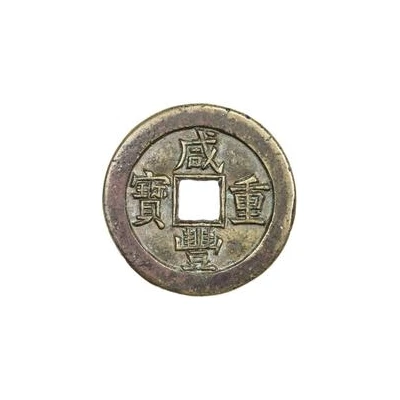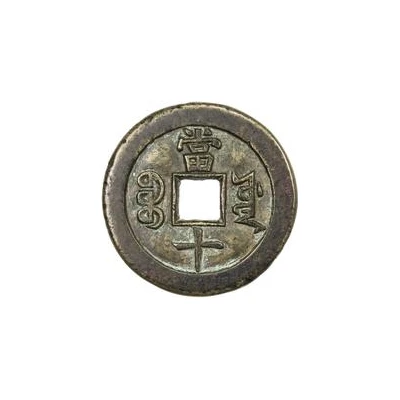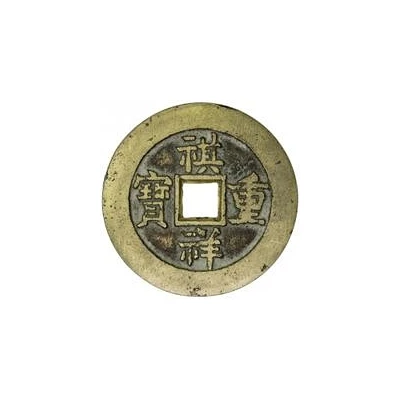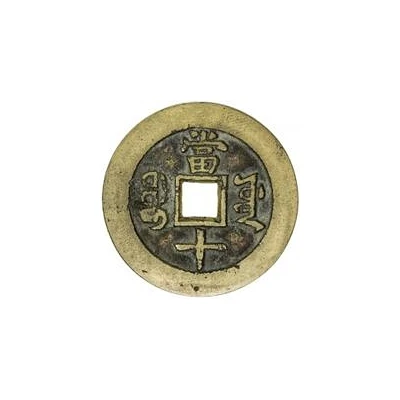10 Cash - Qixiang Zhongbao; Boo-chiowan ND
1861 year| Brass | - | 32 mm |
| Issuer | Empire of China |
|---|---|
| Emperor | Qing dynasty › Tongzhi (同治帝) (1861-1875) |
| Type | Non-circulating coin |
| Year | 1861 |
| Value | 10 Cash |
| Currency | Cash (621-1912) |
| Composition | Brass |
| Diameter | 32 mm |
| Shape | Round with a square hole |
| Technique | Cast |
| Orientation | Medal alignment ↑↑ |
| Demonetized | Yes |
| Updated | 2024-10-03 |
| Numista | N#226359 |
|---|---|
| Rarity index | 100% |
Reverse
Two Manchu words (read vertically) separated by the hole, all with one Chinese ideogram above and one below.
Scripts: Chinese (traditional, regular script), Mongolian / Manchu
Lettering:
當
ᠪᠣᠣ ᠴᡳᠣᠸᠠᠨ
十
Translation:
Dang Shi / Boo-chiowan
Value 10 / Boo-chiowan
Edge
Plain
Comment
When Tonghzi came to power in August of 1861, Qixiang was chosen as the original reign title, which was changed to Tongzhi in November after a coup. Few coins were cast with this reign title (and were only cast in August), and none were officially released for circulation.Interesting fact
One interesting fact about the Non-circulating coin 10 Cash - Qixiang (Zhongbao; Boo-chiowan) ND (1861) from Empire of China made of Brass is that it features a unique blend of traditional Chinese and Western design elements. The obverse side of the coin depicts a portrait of the Qing dynasty's Emperor Tongzhi, while the reverse side features a Western-style wreath surrounding the coin's denomination and year of issue. This blending of design styles reflects the cultural exchange and influence that occurred between China and Western nations during the 19th century.



